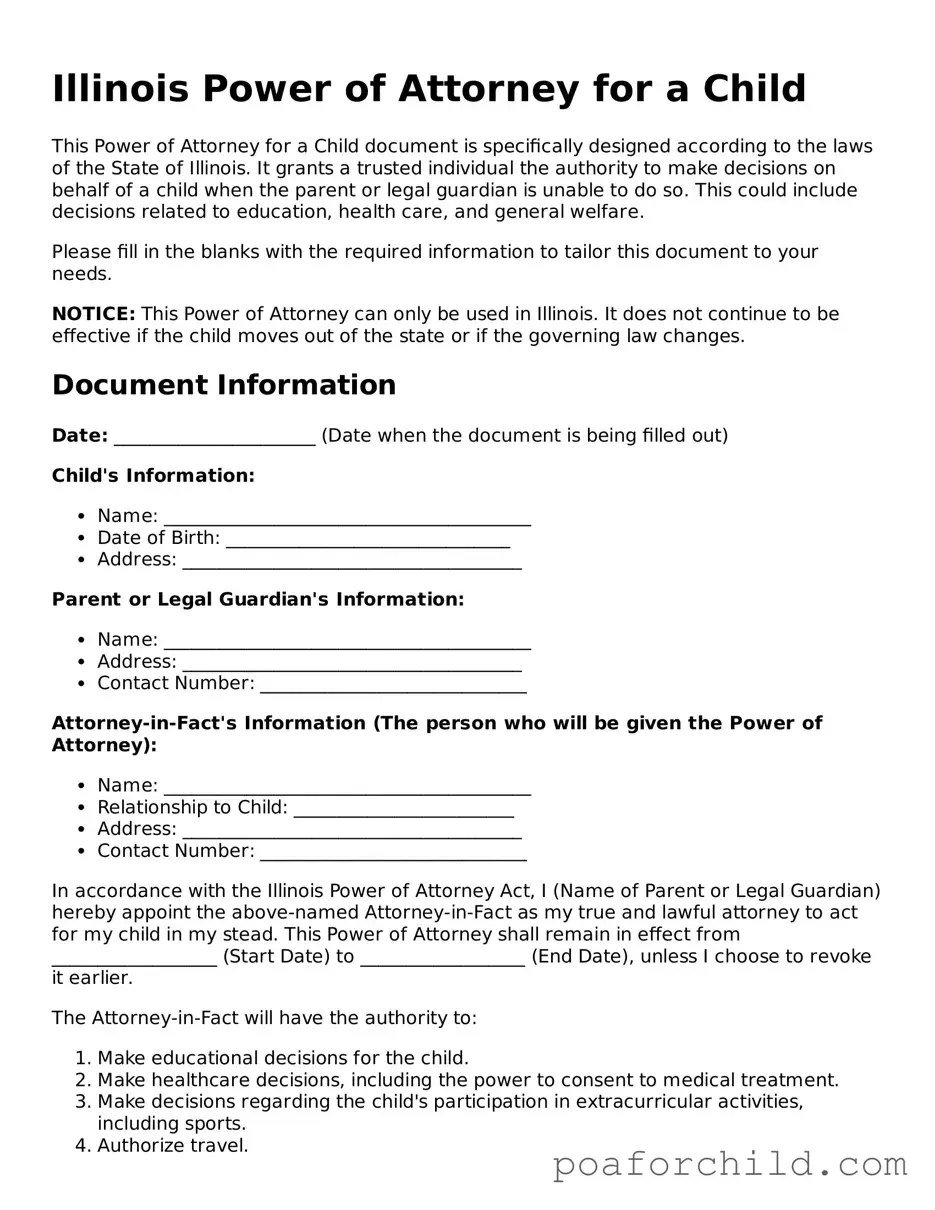Detailed Guide for Using Illinois Power of Attorney for a Child
Giving someone power of attorney (POA) for your child allows that person to make decisions on behalf of your child, especially when you're not available to do so yourself. This could be for a variety of reasons, such as being out of town, having a medical emergency, or any situation where you won't be able to take care of your child's needs directly. The Illinois Power of Attorney for a Child form is designed to appoint a trusted person to act in your stead. It's a legal document that requires thoughtful consideration and precise completion to ensure it accurately represents your wishes and is legally sound. Here's a step-by-step guide to help you fill it out properly.
- Gather all necessary information: the full legal names and addresses of the parent(s) or legal guardian(s), the child, and the person being appointed as the attorney-in-fact (the person who will be making decisions on behalf of the child).
- Download the most recent version of the Illinois Power of Attorney for a Child form from a reliable source. Check the Illinois Department of Human Services website or contact a legal professional to get the correct form.BBC
- Fill in the date the POA will become effective and the expiration date, if any. If you wish the POA to have an indefinite duration, note this specifically.
- Specify the powers you are granting to the attorney-in-fact. This includes decisions related to the child's education, health care, and general welfare. Be as detailed as possible to avoid any confusion in the future.
- Include any specific instructions or limitations on the powers being granted. If there are certain decisions you do not want the attorney-in-fact to make, list them clearly on the form.
- Review the form thoroughly. It's important to ensure all the information provided is accurate and that the document reflects your wishes clearly.
- Sign and date the form in front of a notary public. The presence of a notary public is required to authenticate the identity of the signer and to witness the signing.
- Have the appointed attorney-in-fact sign the form, acknowledging their acceptance of the responsibilities and powers being granted to them.
- Provide copies of the signed and notarized form to the attorney-in-fact, any institutions or individuals who may need it (such as schools or healthcare providers), and keep a copy for your own records.
Once the Illinois Power of Attorney for a Child form is filled out and properly executed, it grants the appointed party the authority to make decisions for the child under the specified conditions. Remember, this form is a legal document and revoking it will require notifying all parties involved, including the attorney-in-fact, in writing. Regularly review the document to ensure it still aligns with your wishes and make amendments as necessary. It's always a good idea to consult with a legal expert to ensure that all steps are correctly followed and that the form is filled out in compliance with Illinois law.
